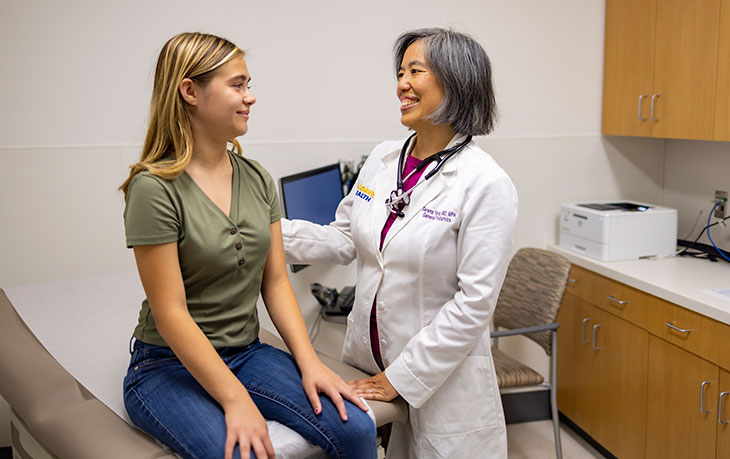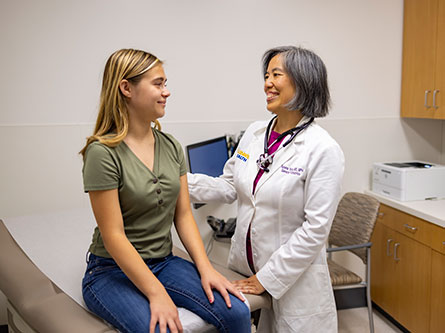Nearly 80 million Americans – 1 out of every 4 people – are infected with human papillomavirus (HPV), a virus that causes several types of cancer. Of those millions, 37,000 will be diagnosed with an HPV-related cancer this year.
Despite those figures, HPV vaccination rates remain much lower than other recommended adolescent vaccines in the U.S. Health experts continue to encourage HPV vaccines and cervical cancer screenings.
What is HPV?
The human papillomavirus (HPV) is from the family of papilloma viruses that infect human cells. It's the cause of 5% of all cancers and is the most common sexually transmitted infection (STI) in the U.S.
There are more than 100 types of HPV. Thirteen of them are responsible for cervical, vaginal, vulvar, anogenital and oropharynx cancers. HPV 16 is responsible for most HPV-associated cancers.
Genital HPV is the most common STI in the U.S., according to the Centers for Disease Control and Prevention (CDC). At least 50% of sexually active people will have HPV at some point in their lives, but few women will get cervical cancer.
When the body's immune system can't get rid of HPV infection, it can linger. That can cause cells to become abnormal and turn into cancer.
Learn more about female reproductive system cancers
How is HPV transmitted?
HPV is passed through genital (skin-to-skin) contact, most often during vaginal or anal sex. HPV also can be spread during oral sex.
Most people never know they have HPV, or that they are passing it to a sexual partner. So, it may not be possible to know who gave you HPV or when.
HPV is so common that most people get it soon after they start having sex. All women who have had sex are at risk for HPV and cervical cancer.

What does the HPV vaccine do?
The HPV vaccine protects against HPV that most often causes cervical, vaginal, vulvar, penile and anal precancers and cancers. This vaccine also protects against the HPV types that cause most genital warts. Studies show it's nearly 100% effective one month after a person completes the full series.
The vaccine uses empty HPV shells to cause the immune system to recognize the virus if infected. The vaccine prevents normal cervical cells from becoming cancer cells.
Learn more about HPV, HPV vaccines and prevention
When should someone get an HPV vaccine?
It's recommended that children start the HPV vaccination at age 11 or 12, but vaccines can be given as early as age 9. Catch-up HPV vaccination is recommended through age 26. The U.S. has recommended routine HPV vaccination for females since 2006, and for males since 2011.
The vaccine does not treat HPV infections, so it should be given before the start of sexual activity when it's most effective in preventing infection. After a person engages in sexual activity, they are much more likely to be exposed to one or more strains of HPV.
The National Cancer Institute and its designated cancer centers, including UC Davis Comprehensive Cancer Center, strongly encourage parents to vaccinate their adolescents as soon as possible.
Learn more about the HPV vaccine and how it protects against cancers and genital warts
Find out more about HPV vaccine recommendations from the CDC
Why should women get regular cervical cancer screenings?
When found early, cervical cancer is very treatable. Getting regular cervical cancer screenings can lower a person's chances of dying from this cancer.
Regular pelvic exams, Papanicolaou (Pap) tests and/or HPV tests help find abnormal cells in the cervix before cancer develops.
See the cervical cancer screening recommendations and more about screenings
This blog was medically reviewed by Dean Blumberg, chief of pediatric infectious diseases at UC Davis Health.




